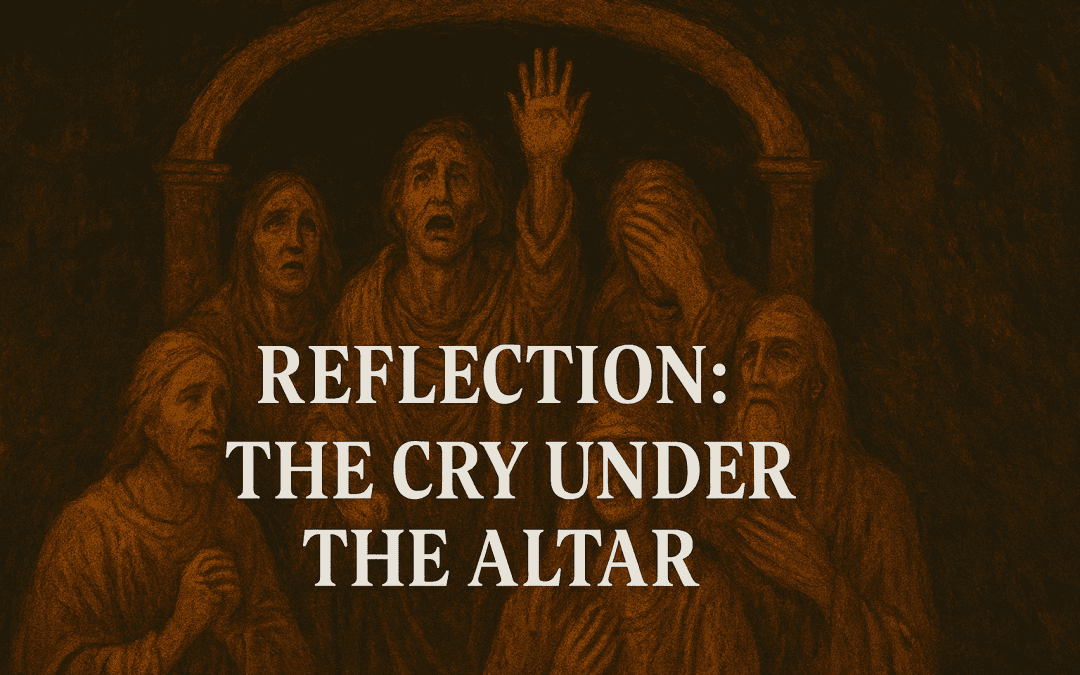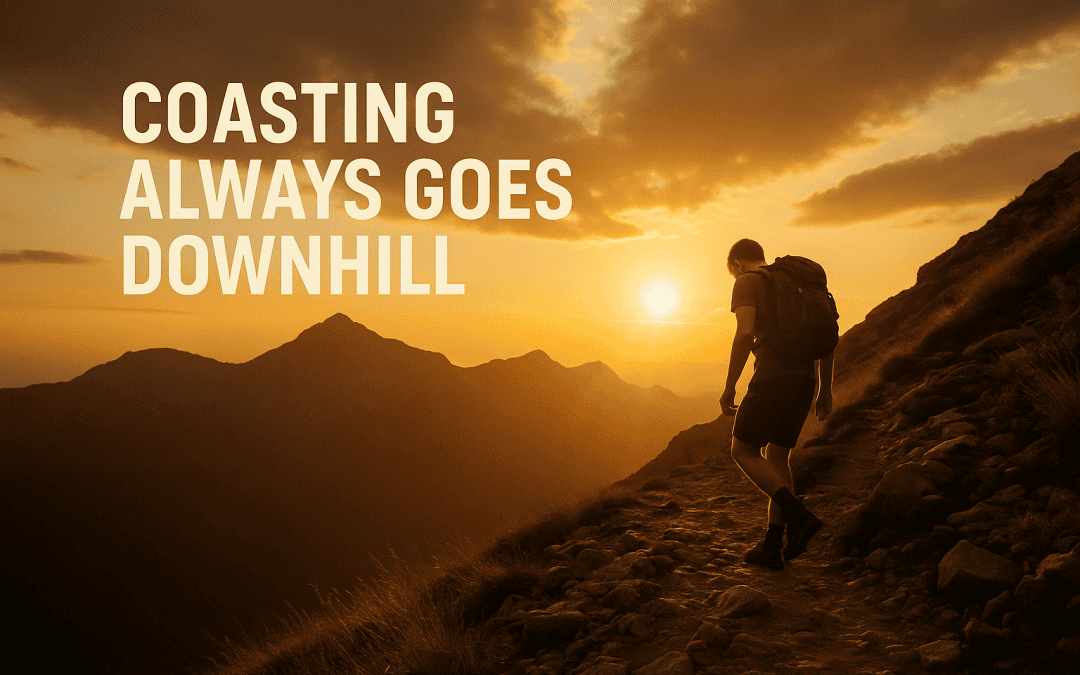
Reflection: The Cry Under the Altar
There are moments when ancient words suddenly become present reality. When scripture leaps off the page and lands in our headlines. You read about martyrs in Revelation and think it’s ancient history—until you see a modern witness silenced for speaking truth. You study the early church’s persecution and assume it’s past—until you watch faith cost someone everything in real time. These aren’t just Bible stories anymore. They’re today’s news. When heaven’s altar grows more crowded, and earth feels more empty.
Revelation isn’t just prophecy of the end; it is a mirror of the present, showing us what happens when darkness collides with light.
“And when he had opened the fifth seal, I saw under the altar the souls of them that were slain for the word of God, and for the testimony which they held: And they cried with a loud voice, saying, How long, O Lord, holy and true, dost thou not judge and avenge our blood on them that dwell on the earth?” (Revelation 6:9-10 KJV)
The vision John recorded in Revelation pierces our hearts in fresh ways today. It is not just a distant picture of the early church. It is not just history. It is our story, unfolding again in our generation. When Charlie Kirk was shot and killed while speaking boldly on a Utah campus, the cry of Revelation 6 came rushing back to life. Another witness silenced on earth. Another soul gathered beneath the altar of God.
This passage forces us to face the reality of what it means to follow Christ without compromise. To live openly for truth in a world that rejects it. To know that our faith is not a safe hobby but a costly allegiance. The altar in heaven grows heavy with witnesses who bore that cost. Their blood testifies. Their voices cry out. Their faith still speaks.
The Reality We Face
And yet, even in our grief, we do not despair. The souls John saw were not abandoned. They were sheltered in the very presence of God. Their cry—”How long, O Lord?”—was not ignored. It was received. This means something crucial: God does not overlook the suffering of His people. He does not dismiss their blood. He counts every drop. He hears every cry.
For those of us who’ve worn different kinds of armor—whether kevlar or spiritual—we understand that standing for truth has always come with risk. Having stood watch in dangerous places, I know the cost of courage. Charlie knew it too.
This truth stirs three responses within us as believers:
Spiritually, we recognize that martyrdom is not the end of the story. Death for Christ is not an exit but an entrance into glory. The world may intend to silence, but heaven resounds with their witness. The altar grows heavy with witnesses, and we can almost hear Charlie’s voice joining that ancient chorus—crying out not in desperation, but in holy longing for God’s righteousness to prevail.
Emotionally, we ache. We feel the sting of injustice. We weep at the violence that tried to smother light. And yet our tears are anchored in hope. We know the promise: God will avenge. He will make right what is broken. The cry of “How long?” is not unanswered—it is being carried toward the day of perfect justice.
With joy and confidence, we remember that every act of hatred against God’s people has only ever strengthened the church. The cross looked like defeat, but it became victory. The blood of martyrs has always been seed for revival. What the enemy meant for silence, God uses to amplify.
The Call to Stand
Charlie’s life and death call us to examine our own. Are we willing to stand? Are we ready to be counted? The souls beneath the altar do not whisper—they cry out with a loud voice. Their boldness should stir ours. Their sacrifice should awaken us.
So we respond with both mourning and resolve. We grieve because we feel the loss. We resolve because we know their witness is not wasted. We lift our own voices, not in fear but in faith, not in bitterness but in boldness.
And here lies the paradox of the Christian heart: we ache and rejoice at the same time. We cry “How long?” and we also say, “Come, Lord Jesus.” We carry sorrow, but we also carry songs. Because we know that the Lamb who was slain is also the King who reigns.
Our Response
The end of the story is already written. Every martyr will be vindicated. Every tear will be wiped away. Every faithful witness will be clothed in white, standing before the throne with joy unshakable. Until then, we live as torchbearers in the darkness, confident that no bullet, no hatred, no grave has the power to stop the mission of God.
The altar is not empty. It is filling. And every soul beneath it reminds us that our testimony is worth everything—because Christ is worth everything.
The question isn’t whether we’ll face opposition—those who serve always do. The question is whether we’ll stand firm when it comes, armored in truth and shining light into the darkness. Will our lives echo their testimony? Will our faith cost us something real?
We are called to be watchmen on the walls—alert, faithful, ready. Like Ezekiel’s watchman who was commanded to warn the people, we stand guard in our generation. We watch for the enemy’s approach. We sound the alarm when truth is under attack. We hold the line when others fall back.
But the call is not just to watch. It is to stand armored in truth, carrying light into the very places darkness tries to reign. Armor without light is only defense; light without armor is only exposed. Together they form the testimony we are called to live.
Charlie answered that question with his life. The altar grows heavier with his witness. And heaven grows brighter with his light. His watch is ended, but ours continues. So let us take up the watch, armored and shining, until the day the cry under the altar is answered and the Lamb returns in glory.

